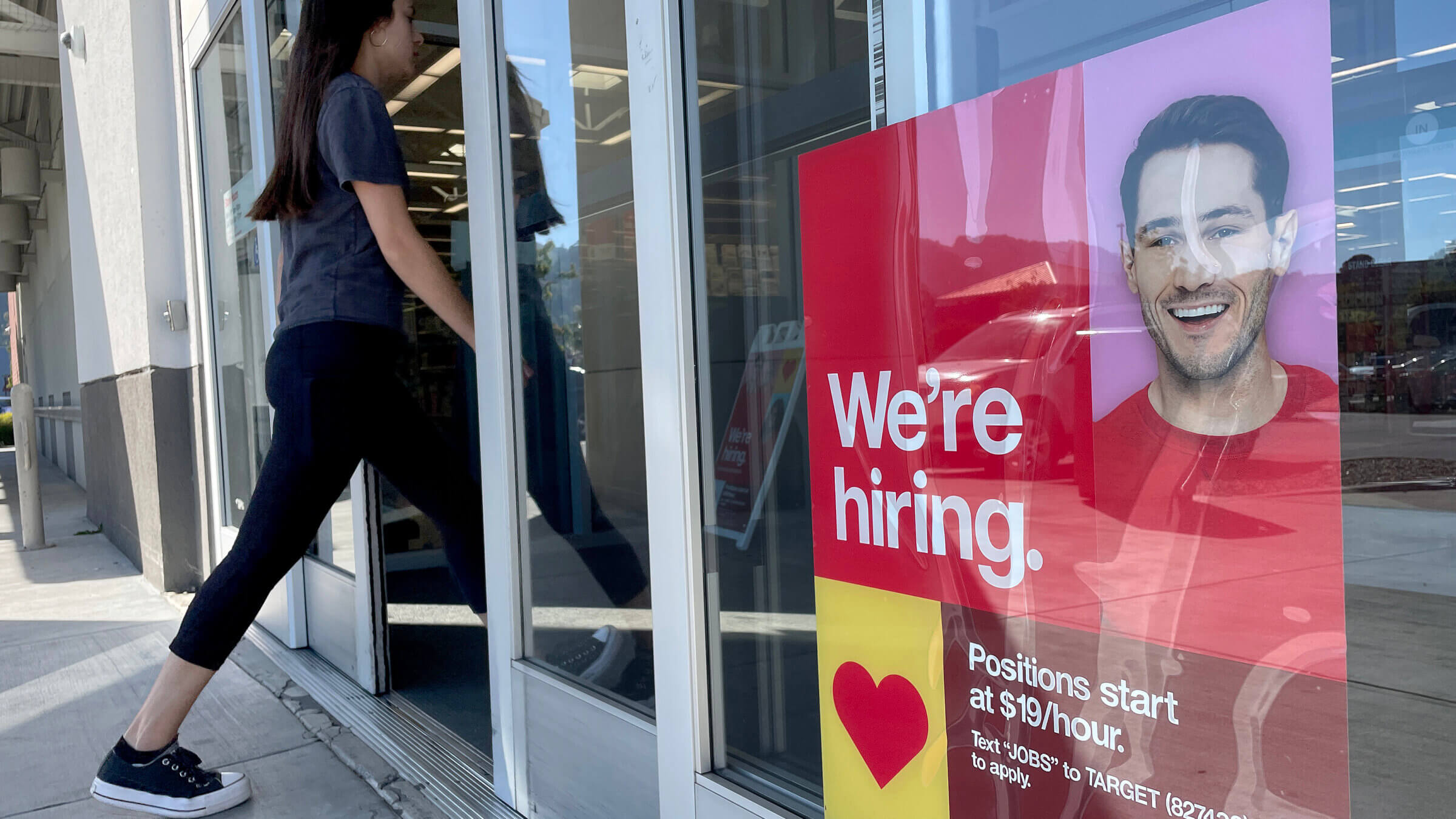Jews and Israelis may face hiring discrimination in the U.S., study finds
Applicants named “Cohen” and “Avraham” with Jewish activities and Hebrew on their resumes got fewer positive responses from employers

A study found that individuals with common Jewish and Israeli names fared worse when applying for entry-level administrative roles. Photo by Getty Images
A job applicant named “Rebecca Cohen” is slightly less likely than one named “Kriste Miller” to receive a positive response when applying for administrative roles, according to a study released Wednesday that found evidence of hiring discrimination against Jews in the United States. Both did better than “Lia Avraham.”
The study sponsored by the Anti-Defamation League sent 3,000 email inquiries regarding open positions using the three names and paired them with resumes that were parallel in terms of education and relevant experience. Miller, who had worked at an Italian restaurant and volunteered with an Irish American sports association, received a positive response to 17.4% of her applications compared to 14% for Cohen, whose resume listed work at a Jewish deli and for a Jewish sports group.
Avraham, an alias meant to represent an Israeli applicant and whose resume said she spoke Hebrew, got a 12.5% positive response rate
“It was a surprising and upsetting result,” said Bryan Tomlin, an economics professor at California State University Channel Islands, who conducted the research.
Jonathan Greenblatt, ADL’s chief executive, called it “groundbreaking evidence of serious antisemitic discrimination in the labor market.”
The findings suggest that Jews may face more hiring discrimination than some other groups, including Hispanics, but less than Blacks, Asians, Muslims and Middle Easterners, according to a recent summary of similar studies.
But the study is the first rigorous attempt in decades to measure antisemitism among employers, making it difficult to assess the impact of the Israel-Hamas war and recent increases in antisemitic incidents.
Character test
It worked by sending out job applications that were identical except for the different names and a few tell-tale indicators of personal background — Cohen’s application said she majored in Jewish literature, for example — to entry-level administrative assistant roles listed on Craigslist. All three were said to have graduated college in 2020.
Tomlin said he used Craigslist because its postings don’t require candidates to answer specific questions, like other job portals, and because they are often reviewed by an individual rather than an automated system.
Minority applicants tend to fare better when they apply through such automated systems, because there is less room for personal biases to enter the process. Craigslist responses are “more likely to give you an impression of people’s actual feelings,” Tomlin said.
His findings showed that Cohen, the Jewish character, would have needed to send out 24% more applications than Miller in order to receive the same number of positive responses. Avraham, the Israeli, had to send 39% more applications.
Tomlin said it is impossible to know how this data translates to other fields, more senior roles, or jobs where applications are handled by automated systems.
Antisemitism versus other biases
“Audit” studies, where researchers compare responses to applications from candidates with different names, genders and other characteristics, are fairly common and have consistently found that employers discriminate against Black candidates and mothers.
Earlier this year, a trio of European researchers synthesized dozens of these studies conducted over the last 15 years to determine which groups were most likely to face discrimination. They found that some applicants — like military veterans — faced virtually no disadvantages in hiring, while people with disabilities and applicants who were Arab or Asian faced some of the highest rates.
Tomlin’s study suggests that Jews face more discrimination than Hispanics and mothers but much less than Blacks, Asians, Indians and mixed-race applicants. Israeli Jews applying for jobs in the U.S. would experience more discrimination than both non-Israeli Jews and Muslims.
“We are seeing a smaller difference than we see between white or Black,” Tomlin said. “But it’s still an effect — and I wouldn’t call it small.”
A message from our Publisher & CEO Rachel Fishman Feddersen

I hope you appreciated this article. Before you go, I’d like to ask you to please support the Forward’s award-winning, nonprofit journalism so that we can be prepared for whatever news 2025 brings.
At a time when other newsrooms are closing or cutting back, the Forward has removed its paywall and invested additional resources to report on the ground from Israel and around the U.S. on the impact of the war, rising antisemitism and polarized discourse.
Readers like you make it all possible. Support our work by becoming a Forward Member and connect with our journalism and your community.
— Rachel Fishman Feddersen, Publisher and CEO




























